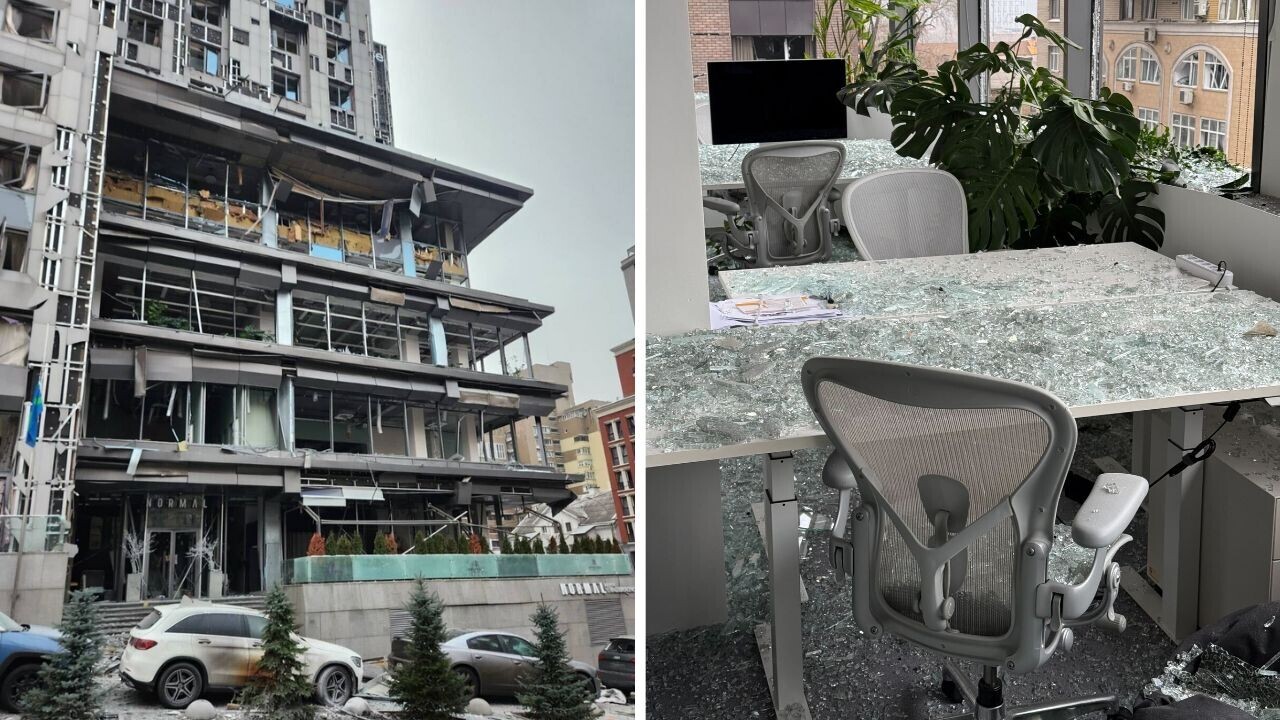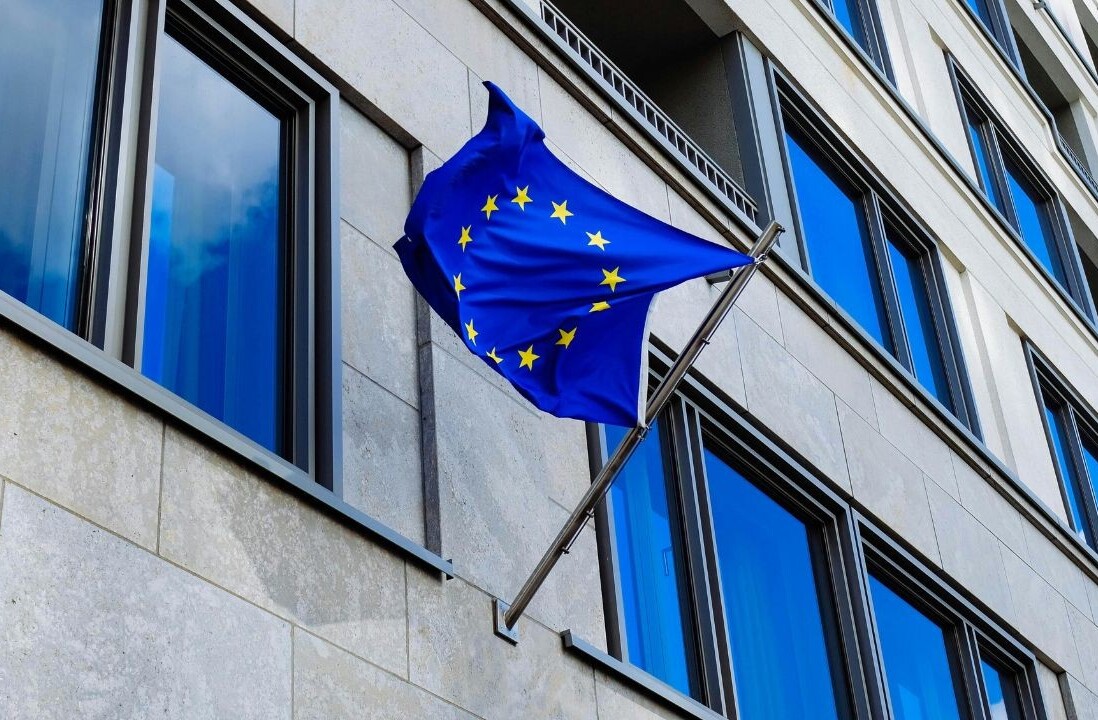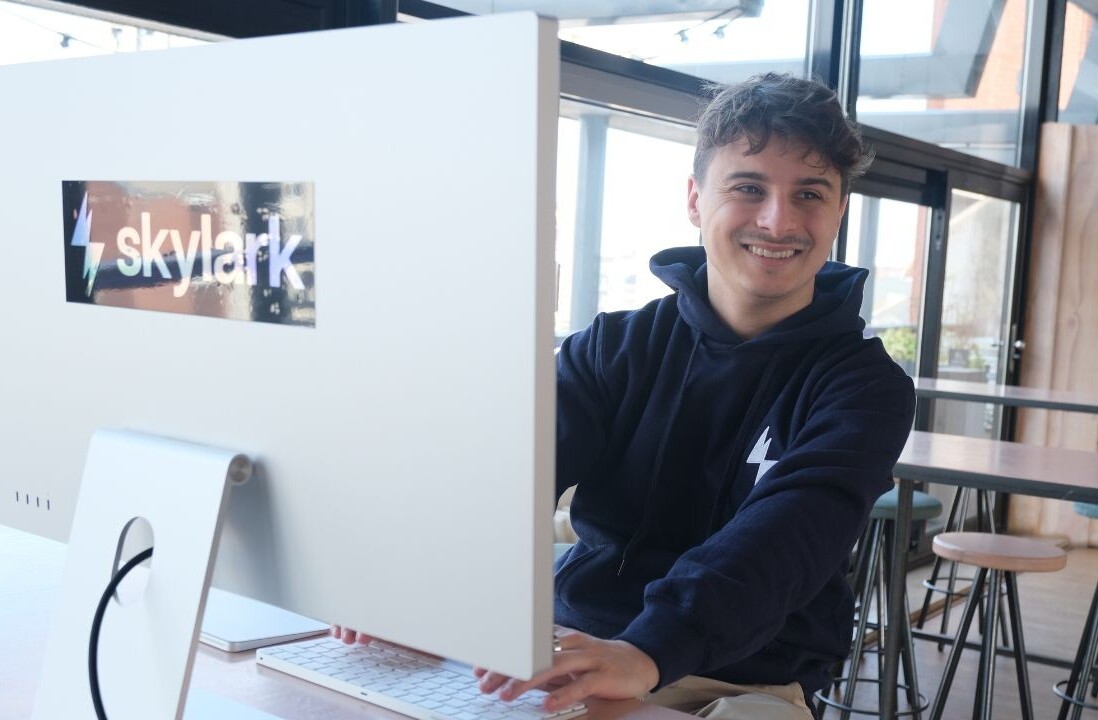
Every entrepreneur has to overcome obstacles, but few have faced the challenges of Oleksandr Kosovan. As the founder and CEO of Ukrainian scaleup MacPaw, Kosovan runs his business in a country under invasion. The company has even been hit by missile barrages.
As relentless Russian bombing and shelling pummel Ukraine, his team presses on with their work. In October, they released a new version of CleanMyMac, MacPaw’s flagship maintenance and optimisation product.
“It was completely developed during the war,” Kosovan tells TNW on a video call from his home in Kyiv.
The software earned rave reviews. But two months later, the horrors of war arrived at MacPaw’s doorstep.
On a cold December morning, another devastating Russian ballistic missile attack struck Kyiv. The explosion hit MacPaw’s headquarters, shattering the building’s facade, windows, and engineering equipment. According to the rescue services, one person was killed in the attack.
Kosovan was en route to an event when a message about the strike appeared on his phone.
“The only thing we could do is initiate our emergency procedures,” Kosovan says. “We had plans for this risk and they helped us to organise actions — because people were panicked. They didn’t know what to do.”
Safety measures were swiftly implemented, emergency checks conducted, and recovery steps taken. The next day, MacPaw gained access to the office building. Staff worked alongside emergency services to salvage equipment and prevent further damage.
The company’s office spans three floors of the building. The hardest hit of them is still not operational, but the others have reopened. Staff are already working in them again.
MacPaw’s wartime adaptations had given the business a head start on the recovery. Many team members were already working remotely. Processes had become highly automated. Staff were spread out geographically and shifts were scheduled to cover all critical roles during emergencies and military call-ups.
While the missile strike was traumatic, MacPaw had been prepared.
Preparing for war

As Russian troops amassed on the border with Ukraine in late 2021, MacPaw began disaster planning.
The company devised mitigation measures for various threats, from cyber attacks to Russian forces taking control of the office. An emergency team was formed from each product and service unit, with members based either outside Ukraine or in the country’s safer western regions.
Communications security was beefed up, with Signal adopted as a new messaging service. Office infrastructure was moved entirely to the cloud. Satellite internet was set up to cover the risk of internet loss. The company then waited for reports on Russia’s military moves.
On day one of the full-scale invasion in February 2022, MacPaw activated its risk mitigation plan.
“We had to refocus our priorities,” Kosovan says. “The first of them was, of course, the safety of our people, and then the continuity of our business.”
A code freeze regime was implemented for all products and infrastructure, with no changes permitted without prior approval from the emergency team.
Hardware management strategies also shifted. With supply chains disrupted, new laptops now had to be sourced from abroad. At times, system administrators had to drive to remote locations and personally deliver laptops to team members.
As wartime conditions became routine, the team adapted to their new reality. Nowadays, their biggest challenge is Russia’s relentless attacks on Ukrainian energy infrastructure.
The strikes cause frequent and protracted power outages. In MacPaw’s home town of Kyiv, daily blackouts of eight hours have become commonplace, leading more team members to work from the office. To keep operations running, the company has installed extra power and internet access lines. A backup generator has also been acquired, alongside an uninterrupted internet access point via Starlink.
“Starlink helps a lot,” Kosovan says. “It is one of the saving factors for Ukraine.”
The new measures have kept MacPaw’s systems running throughout Russia’s attacks on Ukraine’s power grid. But the human impacts have been harder to resolve.
The recovery process

Although no MacPaw staff were physically harmed in the missile attack, the psychological toll has been profound.
“The greatest challenge we and many other companies are facing here right now is not the destruction of the offices, but the exhaustion of these people,” says Kosovan. “Mentally, this is very hard to process. People are breaking sometimes, and it is very hard to predict and help them.”
For months, staff in Kyiv have endured air strikes day and night. “People cannot sleep normally because they always hear these explosions in the air…They don’t know whether the next night a drone will hit their house or not.”
The brutality of the December missile attack was a stark contrast to the previous day at MacPaw. Staff had been preparing holiday gifts for Children of Heroes, an organisation that supports Ukrainian children who have lost parents in the war.
Through the MacPaw Foundation, the company also provides Ukrainians with non-lethal aid, including protective gear, IT equipment, and medical supplies. Since 2022, the non-profit has distributed over $12mn in total support
Alongside the humanitarian projects, Kosovan is helping to sustain the country’s IT sector. He’s personally invested in almost 20 Ukrainian businesses, including Osavul, a Kyiv-based AI startup that analyses information threats.
Formed to counter Russian propaganda, Osavul now offers services to governments and businesses alike. “Our goal is to review the narratives, show which of them are dangerous, and then give you all the intelligence to understand what you can do,” Dmytro Bilash, the startup’s co-founder, told TNW last year.
In combat zones, Ukrainian tech also has a powerful impact. Innovations range from a growing fleet of domestic drones to Delta, a battlefield management system. Developed by the military, the software combines a variety of tools, from digital maps to secure communications.
Ukrainian Army Lieutenant Colonel Yelyzaveta Boiko describes the system as “Google for the military.” “Google helps to organise your workspace, DELTA helps to organise your war space,” she said last year.
Beyond the theatre of war, MacPaw has sought to preserve Ukraine’s tech heritage. The latest result is Innovation in Isolation — a book that chronicles the country’s IT history.
The past and future of Ukrainian tech

Released in Europe and the US last month, Innovation in Isolation explores Ukrainian tech from the 1940s to today.
Through archival research, interviews with IT luminaries, and vivid photography, the book unravels the country’s digital evolution. The stories span from cybernetics pioneers to modern innovators such as Grammarly and Reface.
All proceeds from the book will go to humanitarian relief efforts through the MacPaw Foundation. Yet the project is not solely a charitable endeavour.
“It’s also important to talk about the history, because we all see how Russia tries to change the past by rewriting the history and claiming a lot of things as their own,” says Kosovan.
“Many things that were considered to be built in Russia or USSR were actually created by Ukrainians and Ukraine. This partially explains why there are so many great tech companies from Ukraine. We have a very rich heritage.”
Even after missile strikes, that heritage continues to flourish.
“There are many companies that emerge in these hard times,” Kosovan says. “Hard times produce strong people. If companies can survive, despite the war and all its challenges, the company has a long-term future.”
Get the TNW newsletter
Get the most important tech news in your inbox each week.




